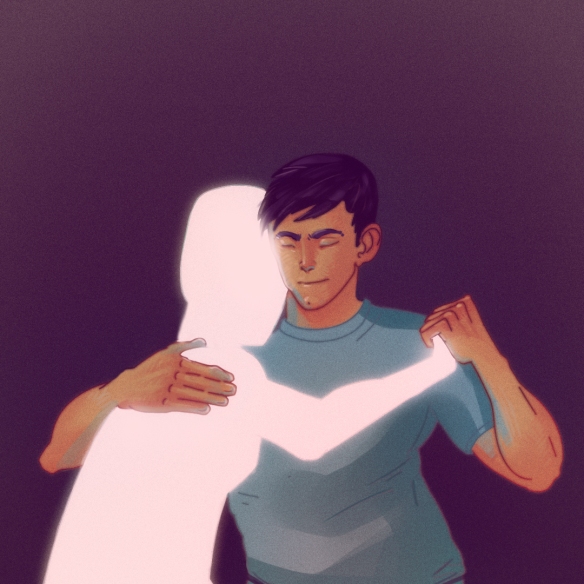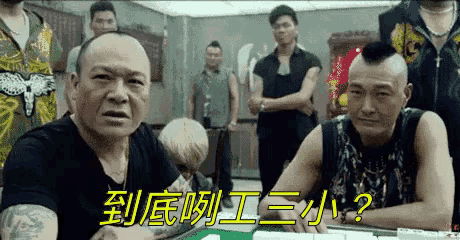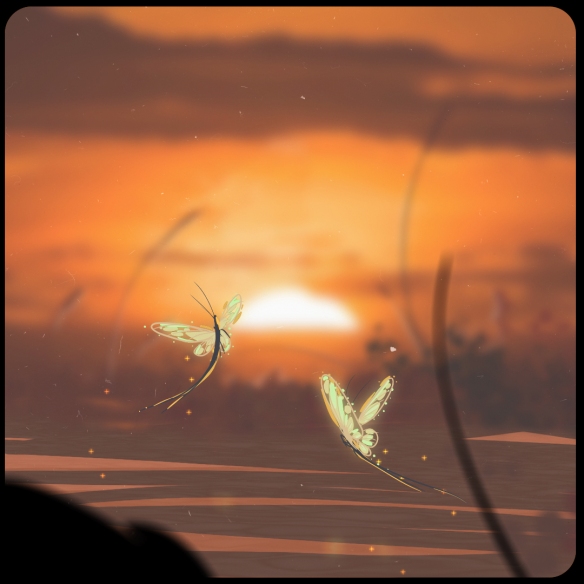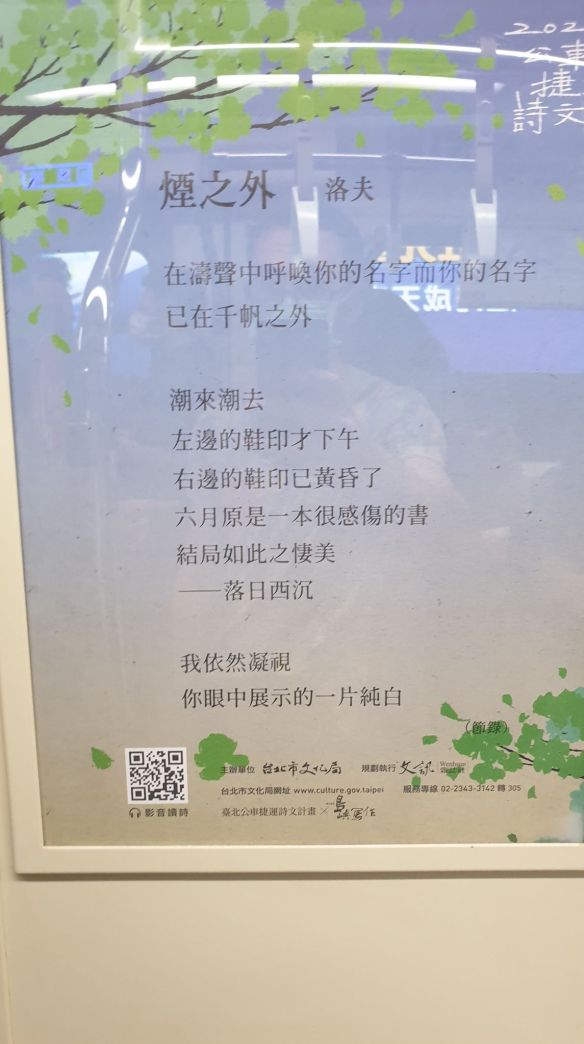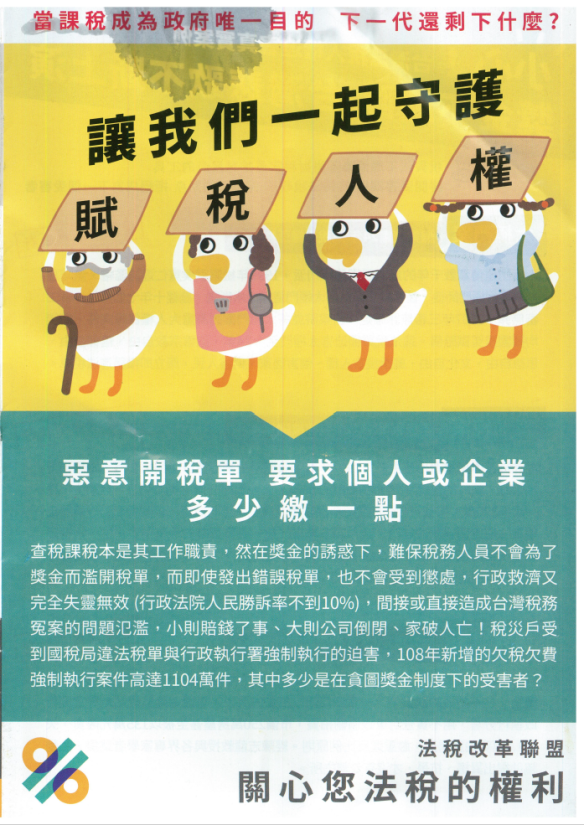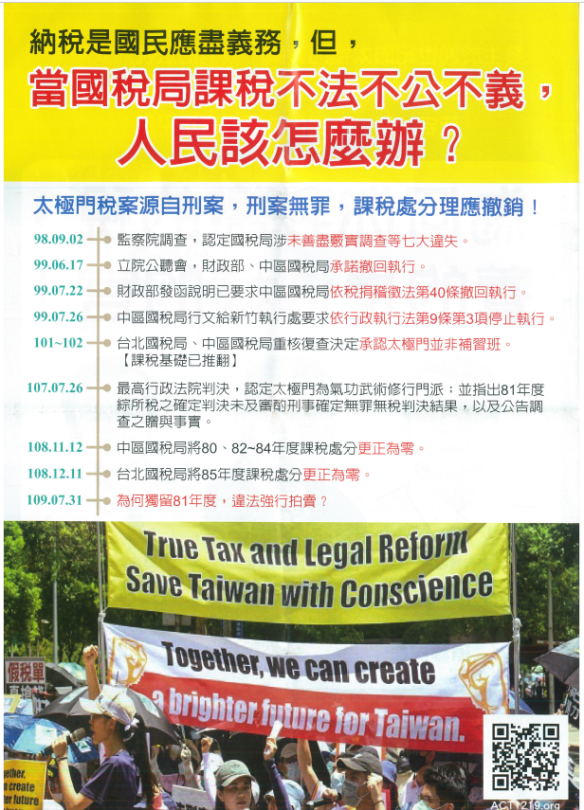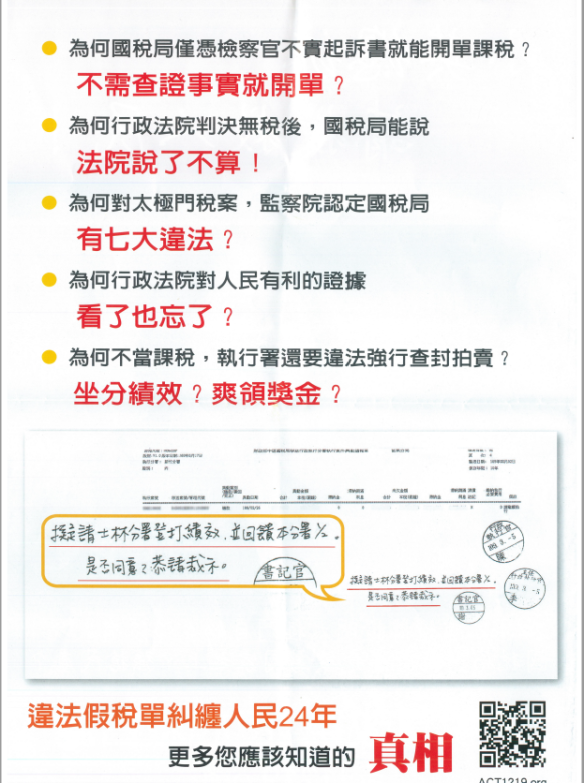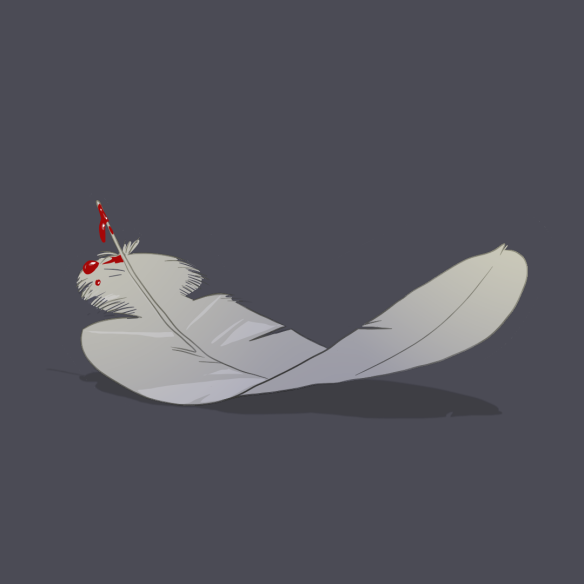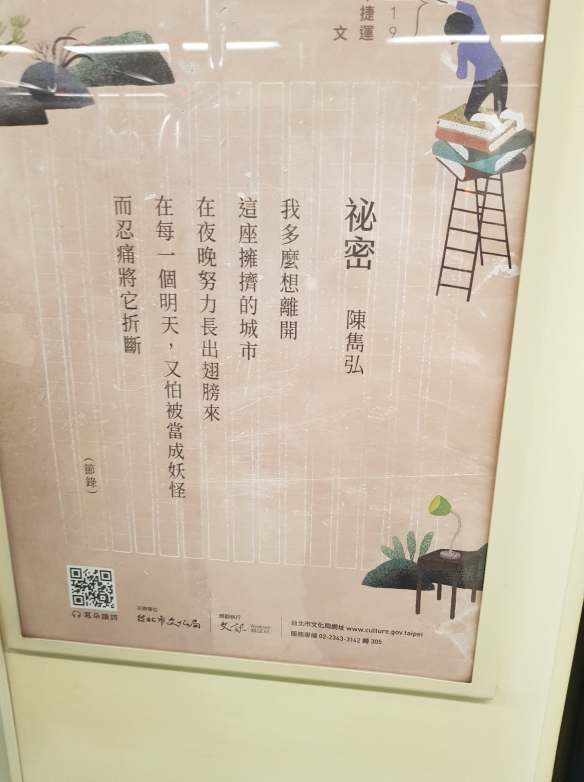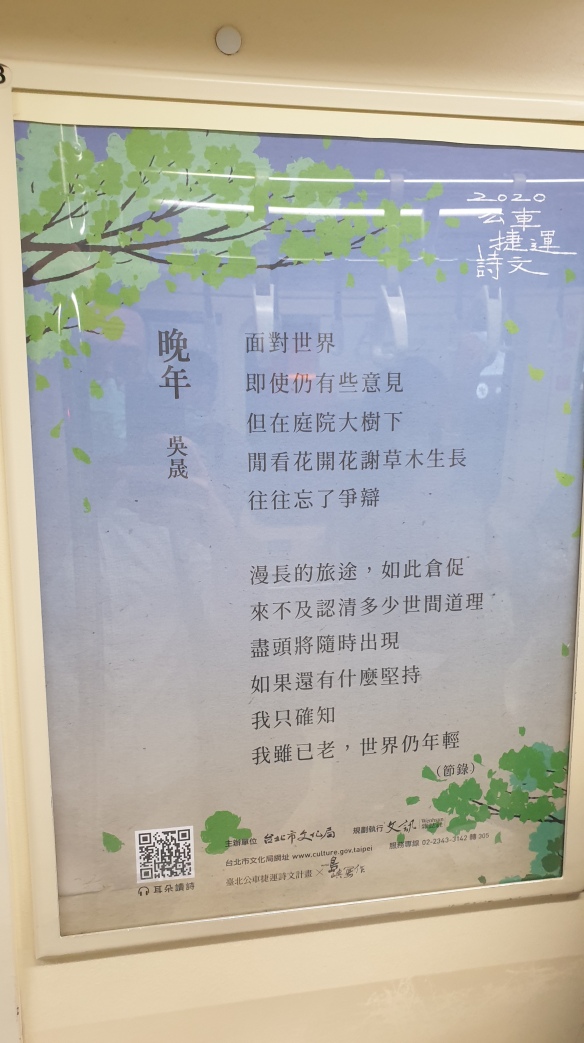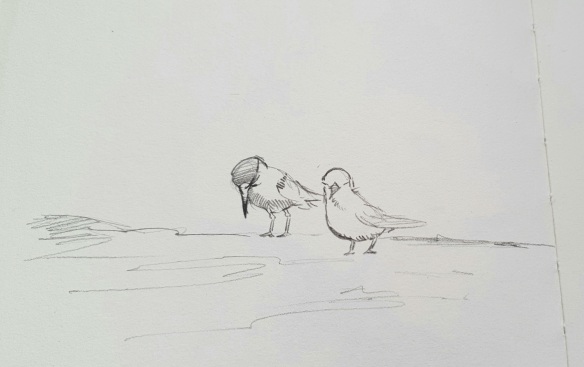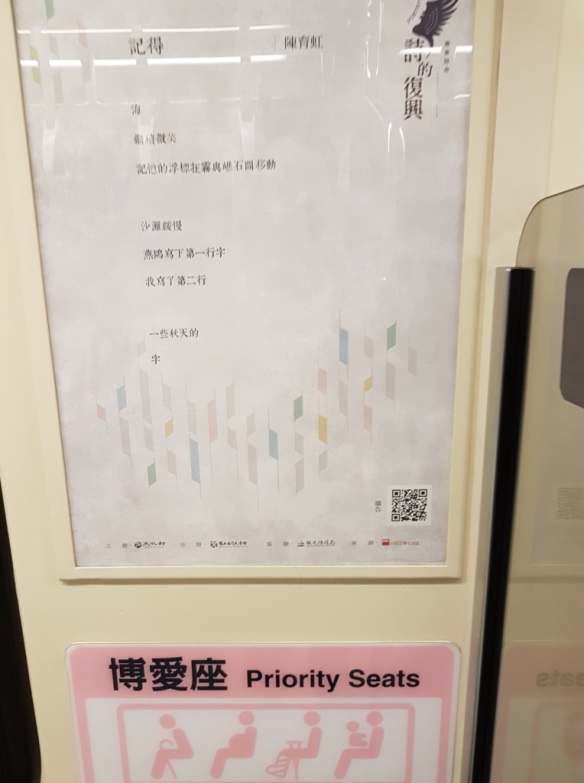In retrospect, I was perhaps a little harsh on the Commute For Me (台灣通勤第一品牌) podcast, as it has grown on me in the time since I penned this blog on Chinese-language podcasts from Taiwan. The interview style is quite intimate and discussions are quite frank, although you have to keep up to know who and what they’re talking about, as they don’t give their guests much of an intro.

Anyway, I was listening to their interview of hip hop artist Chunyan 春艷 and it was an interesting conversation about his life as an introvert in different subcultures (temple gangs, graffiti art, hip hop). More importantly, there was quite a lot of Mandarin-Taiwanese code-mixing, which is always fun.
I’ve listed some of the phrases below, although there were a lot more.
One of the most interesting was 𨑨迌 (normally the characters 企投 are borrowed to represent the sound):
𨑨迌 chhit-thô, which literally means to play or “遊玩” in Mandarin, but in the context of this conversation means getting up to no good in a gang context (what gang banging meant before porn redefined it), commonly referred to as “混” (hùn) in Mandarin:
“其實那裡就是不挑人 說真的 但我不能說這是陣頭 它只是一個𨑨迌(chhit-thô)”
(Actually, they are not selective at all about people to be honest. But I’m not saying that this is really a temple parade (zhentou), it’s just messing around with gangs.)
Listen here from 43:49
被ㄠ/被凹 phē au is an interesting one because the Mandarin and Taiwanese are similar enough that the bei is often pronounced in Mandarin, with the au being pronounced in Taiwanese. It means being forced into things or taken advantage of or “被勉強” in Mandarin.
你那時候去是有被挺的感覺
更多的時候是你要挺
對啊,因為是互相的 所有別的人來的時候你就要挺他
所以有時候會覺得被凹,對不對
挺你一而已 不過你要挺他五
(-So when you went there, you felt they had you back
-More often it’s you that has to have their back
-Yes, because it’s mutual, so anyone who came there, you had to have their backs
-So sometimes you’d feel forced into things, right?
-They have your back over something trivial, but you have to have theirs over something really serious)
Listen here from 44:51
Another example is captured here in people trying to get engineers to reformat their computers for free (found on a jobs page on Facebook):
(Tell us how people try and take advantage of your profession!
“You’re a doctor? You have time to do me a favor and take out this tumor, right?”
“You just have to talk right, why don’t you just do me a favor and argue my lawsuit for me! It’s pretty easy for you as a lawyer, no?”
“You’re an engineer, right? Can you fix my computer for me? You wouldn’t charge a friend though, right?”)
Other bits and pieces I thought were fun, was the use of the Taiwanese word for temple (宮kiong) in the context of a Mandarin sentence to indicate that the temple here stands in for gang affiliation – although it’s not explicit. The other one was a phrase I’ve heard a lot but couldn’t quite pin down. Looking it up in dictionaries, it is defined as “to stand up” but 徛起來(khiā-khí-lâi) seemed to imply being worked or hyped up here, which is why it stuck with me more.
宮 kiong
我們這個宮(kiong)跟另外一個宮(kiong)的一個年輕人 有人有衝突,然後聽說等一下會有人來處理這件事情。
(A young person from our temple got into a conflict with someone from another temple, and some people were coming in a bit to sort things out.
Listen here from 28:46
徛起來(khiā-khí-lâi)
那我朋友就說,我要去打
不要啦
我要去我要去
他那時候就整個徛起來(khiā-khí-lâi)了
我要去我要去
(My friend said, I wanna go fight
Don’t
I wanna go, I wanna go
He’d already gotten all worked up at that point
I wanna go, I wanna go)
Listen here from 29:09
Any additional suggestions welcome!
You can see the rap battle they repeatedly reference here:
The Ko Wen-je collab here:
And more of Chunyan’s music here.

